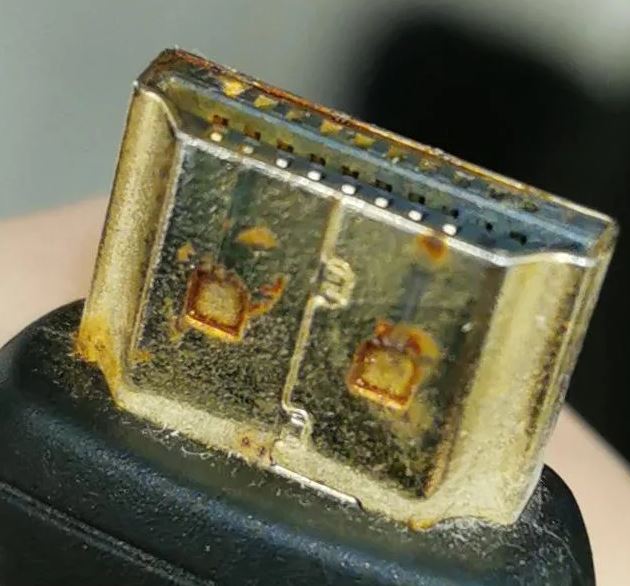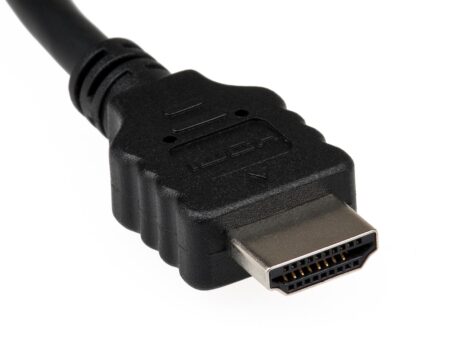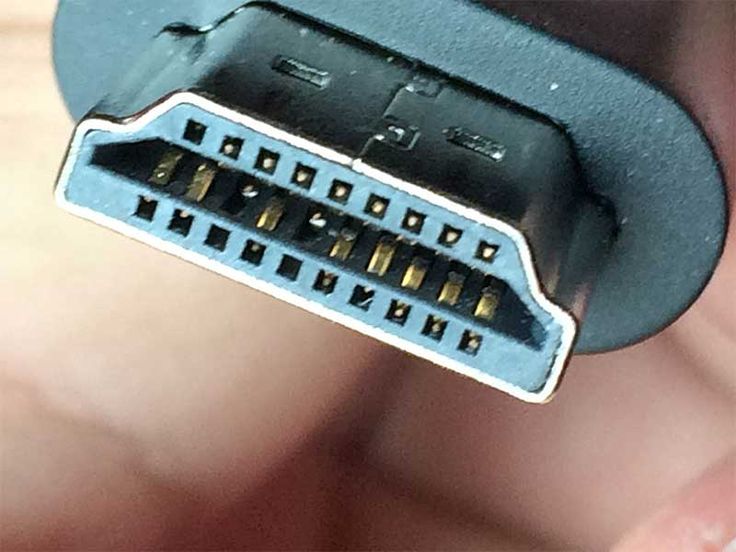This is a common question asked by many people suffering from lousy image or sound quality for their systems. So do HDMI cables go bad? Well, the answer to that question is a yes. HDMI cables CAN go bad generally due to wear and tear.
For starters, HDMI cables are not an organic material; they wouldn’t just decompose independently. So if an HDMI cable is safely sitting in a container, it is unlikely to go bad unless the rust takes over.
On the other hand, they can often go wrong by human-use factors such as wear and tear and physical damage.
In addition, there is also a high possibility that your HDMI cable could have gone obsolete. Hence you may need clarification on HDMI version incompatibility with a bad HDMI cable. You see, the more robust your video device, the more powerful an HDMI cable you need.
In the following text, I’ll talk about identifying if an HDMI cable has gone bad. I will talk about the signs and symptoms of a bad HDMI cable. I will also chat about the different versions of the HDMI interface and compatible HDMI cables for the respective version.
TABLE OF CONTENTS
So Do HDMI Cables Go Bad?
If sitting idly on their own in a safe container, HDMI cables run smoothly. UNLESS you have a cheap quality cable, it is prone to rusting.
However, human use or abuse can make HDMI cables go bad. And this is generally the more common cause.
Therefore, before jumping the gun and concluding that the issue lies with your expensive monitor, TV, PC, or gaming console, it is always better to check the HDMI cable.
Rust Over Time
The only possible cause of an HDMI cable going rancid if sitting idle on its own is if it accumulates rust over time.
Generally, most HDMI cables are worth their salt; even the cheapest ones are galvanized or gold-plated. However, cheap HDMI cables that may have cut corners in their manufacturing process can accumulate rust, leading to them going bad naturally.

Signs of a Bad HDMI Cable
The following are some of the telltale signs of a bad HDMI cable.
1. No Video Output
This is the most common and obvious issue that can arise due to a bad HDMI cable.
In most cases, HDMI cables are either excellent and functional or do a 180 degrees flip and go completely bad. Meaning you get nothing on the output end.
2. Sound Issue
Since HDMI cables also carry sound along with video, so if you do not hear sound from your multimedia device, that could be caused by a bad HDMI cable.
3. Picture Quality Issues
There are many picture quality issues that you may experience due to a bad HDMI cable. This includes blurred, pixelated, monochrome pictures – whereby you only see the image in black and white, discolored pictures and stutters in movies, animations, or any moving frame.
Obviously, most of these issues overlap and are also familiar with the more critical components, such as a wrong HDMI port, a bad motherboard, a bad monitor, etc. Still, since replacing the HDMI cable is simple and cheap, you should bring your troubleshooting process here.
Also Read: Does HDMI Cable Cause Lags?
What Can Cause an HDMI Cable to Go Bad?
As mentioned earlier, only one organic factor can make an HDMI cable go bad: rusting.
Other than that, the factors that can cause HDMI cables to go wrong are all related to your usage. These include:
1. Dust Accumulated on the Connector
It can only be helpful if an HDMI connector accumulates dust in its small nooks and keys. This is particularly true if the dust is accumulated over any of the 19 pins of the HDMI connector.

This issue is relatively easy to resolve as you can take rubbing alcohol and a brush to give the connector a clean bath.
2. Damaged HDMI Pin
Another prevalent cause of an HDMI cable going wrong is a damaged pin. If you have ever been rough with plugging the HDMI cable in and out of the devices, that could break the delicate pins of the HDMI cable.

Perhaps Your HDMI Cable is Obsolete
Another common issue is that your cable may have just gone obsolete.
You see, not all HDMI cables are the same. They are differentiated by the amount of data they are certified to carry.
Newer HDMI interfaces require more robust HDMI cables.
The following table shows the different HDMI interface versions.
| HDMI Version | Max Resolution | Max Refresh Rate | Max Bandwidth (Gbit/s) | Effective Bandwidth (Gbit/s) | HDR? | Audio Technology Supported |
|---|---|---|---|---|---|---|
| HDMI 1.0 | 1080p | 1080p @ 60 Hz | 4.95 | 3.96 | No | – 8 Audio Channels |
| HDMI 1.1/1.2 | 1440p | 1440p @ 30 Hz | 4.95 | 3.96 | No | – 8 Audio Channels -Super Audio CDs |
| HDMI 1.3/1.4 | 4096 x 2160 (4K) | 120 Hz @ FHD Resolution 30 Hz @ 4k Resolution 24 Hz @ 4k Resolution | 10.2 | 8.16 | No | – 8 Audio Channels – ARC – Dolby TrueHD – DTS-HD |
| HDMI 2.0 | 4096 x 2160 (4K) | 60 Hz @ 4K Resolution | 18 | 14.40 | Yes | – 32 audio channels, – Dynamic Resolution Adaptation (DRA) – High-Efficiency Advanced Audio Coding (HE-AAC) |
| HDMI 2.1 | Upto 10240 x 4320 (10K) | Upto 120Hz @ 10K | 48 | 42.67 | Yes | – 32 audio channels – eARC |
Newer HDMI interfaces can carry more data, and hence they can have higher resolution and frame rates. A 4k monitor or a TV with a 60Hz refresh rate would intrinsically feature an HDMI 2.0 port.
Now corresponding to the HDMI interface version, you also have different cable quality certifications. The following table explains this:
| HDMI Cable | Max Specs Supported | Good For |
|---|---|---|
| Standard HDMI | Full HD @ 60Hz | HDMI 1.4 |
| High Speed | 4k @ 30Hz | HDMI 1.4 |
| Premium High Speed | 4K @ 60Hz | HDMI 2.0 |
| Ultra-High Speed | 8K @ 60Hz 4K @ 120Hz | HDMI 2.1 |
So, using a Standard HDMI cable for an 8K@60Hz TV or monitor is a bad idea. If you are okay with it, you may experience picture quality or frame rate quality issues in this arrangement.
The point is, there is a possibility that your HDMI cable hasn’t gone wrong; it has just gone obsolete.
Also Read: Is HDMI Backwards Compatible?
Final Words
So, do HDMI cables go bad? Yes, HDMI can go bad organically due to use and abuse. In most cases, they do not just organically go bad by sitting idle. If you have a cheap HDMI cable, it can rust over time.
However, in most cases, an HDMI cable can go bad due to wear and tear or go obsolete as newer and better interfaces hit the market.
Frequently Asked Questions
1. Are there any environmental factors that can contribute to an HDMI cable going bad?
Environmental factors such as temperature, humidity, and exposure to sunlight or moisture can contribute to an HDMI cable going bad. Cables that are frequently moved, bent, or twisted can also be prone to damage. Additionally, excessive tension or weight placed on the cable can cause the internal wires to break or become loose, leading to a loss of signal.
2. Can a damaged HDMI cable cause damage to other components of your system?
A damaged HDMI cable can cause problems with the audio or video signal quality, such as loss of picture or sound, flickering, or distorted images.
In some cases, a damaged cable can also cause damage to the ports or other components of your system. It is important to replace a damaged cable as soon as possible to prevent further damage.
3. How can you prevent an HDMI cable from going bad prematurely?
To prevent an HDMI cable from going bad prematurely, you should handle it carefully and avoid twisting, bending, or pulling on the cable excessively.
When disconnecting the cable, be sure to grip the connector firmly and avoid pulling on the cable itself.
Additionally, you should store your cables in a cool, dry place and avoid exposing them to excessive heat, humidity, or direct sunlight.
4. Can you repair a damaged HDMI cable or is it necessary to replace it?
It is not recommended to repair a damaged HDMI cable, as this can be difficult to do without damaging the internal wires or connectors.
In most cases, it is easier and more cost-effective to replace the cable with a new one.
If you are experiencing problems with your HDMI cable, it is a good idea to test it with a different cable or device to ensure that the problem is not with the cable itself.
